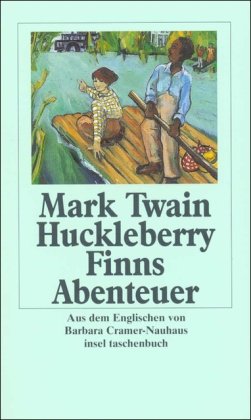


Twain also paints a rich portrait of the slave Jim, a character unequaled in American literature: he is guileless, rebellious, genuine, superstitious, warmhearted, ignorant, and astute all at the same time. Through satire, Twain skewers the somewhat unusual definitions of “right” and “wrong” in the antebellum (pre–Civil War) South, noting among other things that the “right” thing to do when a slave runs away is to turn him in, not help him escape. He encounters a runaway slave named Jim, and the two embark on a raft journey down the Mississippi River. Throughout the 20th century, and despite arguments that the protagonist and the tenor of the book are anti-racist, criticism of the book continued due to both its perceived use of racial stereotypes and its frequent use of the racial slur " nigger".Mark Twain's classic The Adventures of Huckleberry Finn (1884) is told from the point of view of Huck Finn, a barely literate teen who fakes his own death to escape his abusive, drunken father. The book was widely criticized upon release because of its extensive use of coarse language and racial epithet. Perennially popular with readers, Adventures of Huckleberry Finn has also been the continued object of study by literary critics since its publication. Set in a Southern antebellum society that had ceased to exist over 20 years before the work was published, Adventures of Huckleberry Finn is an often scathing satire on entrenched attitudes, particularly racism and freedom. It is also known for its colorful description of people and places along the Mississippi River. The book is noted for "changing the course of children's literature" in the United States for the "deeply felt portrayal of boyhood".

It is a direct sequel to The Adventures of Tom Sawyer. It is told in the first person by Huckleberry "Huck" Finn, the narrator of two other Twain novels ( Tom Sawyer Abroad and Tom Sawyer, Detective) and a friend of Tom Sawyer. Adventures of Huckleberry Finn at WikisourceĬommonly named among the Great American Novels, the work is among the first in major American literature to be written throughout in vernacular English, characterized by local color regionalism.


 0 kommentar(er)
0 kommentar(er)
